Dallas
214-456-8546
Fax: 214-456-6320
Email: colorectal@childrens.com
Our experienced pediatric surgeons are skilled in posterior sagittal anorectoplasty (PSARP), surgery to correct structural problems in a child’s anal opening. At the Colorectal and Pelvic Center at Children's Health℠, our multidisciplinary team specializes in caring for children with complex conditions of the intestines, urinary tract and reproductive organs. We provide expert, compassionate care to support your child’s health, well-being and quality of life.
214-456-8546
Fax: 214-456-6320
Email: colorectal@childrens.com
A PSARP is a surgical procedure to repair several types of anorectal malformations (ARMs). An ARM is a congenital (present at birth) condition that occurs when a baby’s rectum and anus (lower end of the large intestine) don’t develop properly before birth.
In a PSARP, our surgeons perform reconstructive surgery through an approach from the bottom to create an opening through which a child can pass stool (poop). The procedure involves moving the rectum into the correct position and creating an anus within the child’s sphincter muscles. Children usually have PSARP surgery within the first few months of life.
The goal of PSARP surgery is to reposition the rectum into an ideal position with a normal anal opening while avoiding damage to nearby tissues, nerves, urinary tract and reproductive organs. This procedure will allow your child to pass stool naturally through an anus. Our pediatric colorectal surgeons are experienced in this procedure, which gives babies the best chance for good bowel control later in life.
Our surgeons and their teams have years of experience performing PSARP on infants and young children, which reduces the risk of rare, potential problems. If a problem occurs, we quickly take steps to protect your child’s health.
Your child’s care team will discuss possible risks with PSARP surgery with you before the procedure. In general, risks may include:
In the long term, children who had an ARM may develop constipation or fecal incontinence (soiling and accidents), even with successful PSARP surgery. These children may benefit from our bowel management program .
At Children’s Health, our surgeons have the expertise to correct an ARM in a single-stage operation, whenever possible. A PSARP procedure may be the only surgery your child needs for an ARM, depending on the type they have. We work closely with you and your family to help you understand your child’s specific needs and decide on the right treatment options for them.
If necessary, your child may have surgery to create a colostomy within days after birth. This procedure creates an opening in the belly that connects to the large intestine. Your child will have a collection bag attached to the opening to allow stool to exit the body.
A colostomy doesn’t affect your child’s eating and digestion, and your child can continue to grow before the PSARP procedure. This colostomy is temporary until after your child has healed from that procedure.
Your child will have anesthesia for the procedure, so they go to sleep and don’t feel any pain. Surgeons make an incision between the buttocks to access the entire anal sphincter area.
In certain situations, the surgeon may also perform surgery through the abdomen (belly) if there is an abnormal connection between the rectum and urinary tract (fistula) that cannot be reached from the bottom. Learn more about this procedure, called laparoscopic pull-through for anorectal malformations.
The surgeons separate the rectum from other internal structures and position it within the sphincter muscles to provide the best chances for bowel control. The surgeons then attach the sphincter muscles around the rectum to create an anal opening. During the operation, the surgeons will also ensure that no other urological or reproductive problems need repair.
Most children are able to leave the hospital within a few days after PSARP surgery. A few weeks after PSARP surgery, you may need to perform anal dilations to help prevent scar tissue from closing the newly created anus. Your child’s care team will teach you how to perform dilations, which you will do at home until the anal area heals.
If your child had a colostomy as the first stage of reconstructive surgery, it will stay in place after PSARP surgery because it allows the anal area to stay clean of stool while healing. Once the area has healed, your child will have another surgery to close the colostomy. Stool will then pass through your child’s large intestine and out of the body through the rectum and anus.
Your child’s care team will explain how to prepare your child for surgery. Here are some general steps:
Our team brings experts together from multiple medical specialties to treat children with even the most complex ARMs. These conditions can require years of treatment and follow-up care, and we’ll stay by your side and deliver the care your child needs, every step of the way.

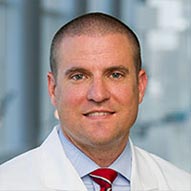
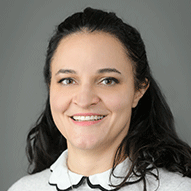
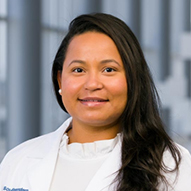
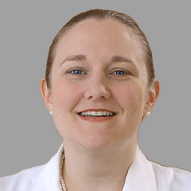



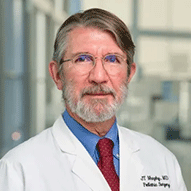
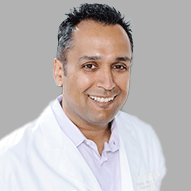
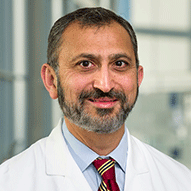
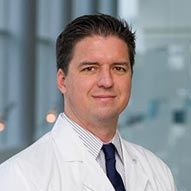

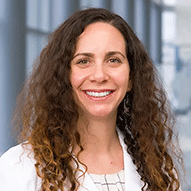
PSARP surgery can benefit children who have an ARM, including:
Most children heal well from surgery and have no complications. For toilet training your child, you can start at the usual age, when they are age 2 to 3. Children with more complex conditions are more likely to have difficulty with urinary (pee) and bowel (poop) function later in life.
A child who has had an ARM may need to use a catheter to help with urinary continence (bladder control). Some children may be slower than others to control bowel movements, and most will experience long-term constipation.
At our Pediatric Colorectal and Pelvic Center, we offer a comprehensive bowel management program to help your child achieve bowel control and avoid future accidents. We work closely with you and your child to customize a program specifically for their unique needs.
Children born with an ARM have a higher risk of certain urological and colorectal conditions, so they need ongoing follow-up care. Some children may experience constipation, urinary tract infections (UTI), and bowel and urinary incontinence, which can lead to more serious conditions if left untreated.
Your child may need additional surgeries later in life to treat these conditions. It’s important to continue to bring them to the Colorectal and Pelvic Center for follow-up care, where we adjust their care plan as needed.
Some children may develop issues with body self-image and may benefit from psychological support. Our center offers access to pediatric psychologists, Child Life specialists and social workers for therapy and other services. With a proactive approach, young adults can feel empowered to take a larger role in managing their condition, offering lifelong health benefits.
Your child’s health needs will change over time as they become an adult. We can help your child transition to an adult care provider with experience treating people who have had ARMs. Some adults who received care for an ARM as children may develop bowel and kidney issues, so it’s critical that they receive ongoing care throughout their lives.